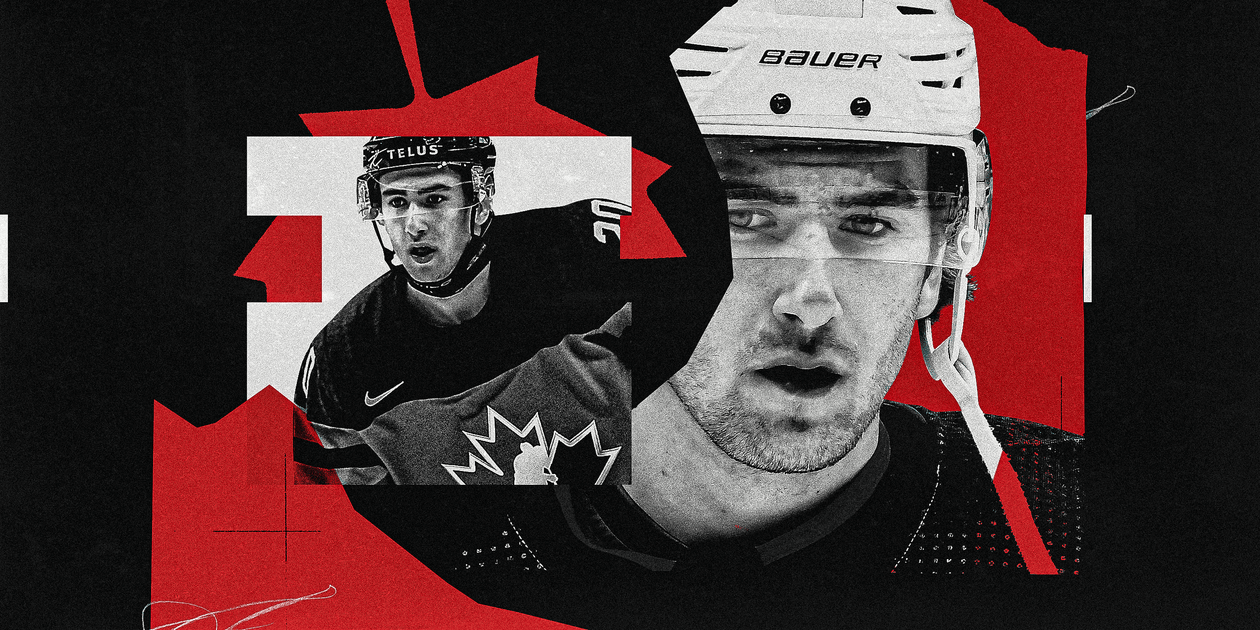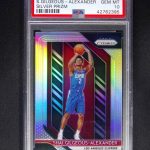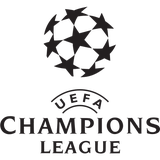

In March 2009, Peter Wall, a Canadian video journalist, traveled to the prestigious Silver Stick PeeWee AAA hockey tournament in Port Huron, Mich., hoping to document families consumed by the all-encompassing, professionalized culture of elite-level minor hockey.
When he arrived in Michigan, Wall found Paul Marner and his 12-year-old son Mitch, a star forward for the Vaughan Kings. And he met Judi McLeod and her son Mikey, who had just turned 11 and played for the storied Toronto Marlboros.
Advertisement
“It felt like they were young professionals,” says Wall, recalling the degree of intensity that fell over the adolescent tournament. “It was all very serious.”
But in the McLeods, Wall felt he had found a foil to the stereotype of a hyper-critical, overly emotional hockey family. They seemed passionate but sensible about the degree of importance put on a competition for children. The McLeods welcomed Wall into their world.
In one scene, filmed in a hotel room before the final day of the tournament, Judi McLeod tells her son: “Every time you go on the ice, think ‘I can make a difference,’ and you will.”
He smiled as his mom gave him a loving pat on the chest.
“You the man,” she said.
Mikey, as he’s been called throughout his life, would become one of hockey’s golden boys. By the time he was 16, a scout touted McLeod’s elite offensive talent and speed and suggested he had the potential to become an NHL player. He was named to the Canadian junior team at 17 and again at 18. A headline in the National Post in December 2017 wondered if he would soon become “Team Canada’s next household name.”
A month later, in January 2018, McLeod helped Canada bring home the gold medal in the World Junior Championships.
Six months later, in London, Ontario, Mikey McLeod and four of his Team Canada teammates — Cal Foote, Dylan Dube, Carter Hart and Alex Formenton — went out to celebrate following a Hockey Canada gala commemorating the team’s victory. What a 20-year-old woman alleged happened later that night, over the span of several hours in a hotel room, is the subject of a court case that begins next week.
At that trial in London, McLeod is facing charges of sexual assault and sexual assault “for being a party to the offense.” He’s the only one of the five facing two charges. Some legal experts have said a guilty verdict could lead to a sentence as long as five years in prison for each charge for a defendant with no criminal record.
Advertisement
All of the London Five were once highly prized prospects brought up through Canada’s minor hockey system, but McLeod stands out both for the talent he showed at a young age and because his family, which includes two brothers who also play professional hockey, was once compared to hockey’s famous clans, like the Sutters and Stalls.
McLeod was a first-round draft pick by the New Jersey Devils in 2016, and spent six seasons in the organization, establishing himself as a fast and physical two-way player. But this past year, he played for two teams in Russia’s KHL, hockey’s hinterlands, after he took a leave from the Devils after being charged in January 2024 and his contract with the club expired.
“My first takeaway was just surprise that a kid that I covered has been implicated in something like this. And obviously I feel a lot of empathy for the victim in this case,” Wall says. Then, with the benefit of hindsight, he adds that something always felt off to him about the world he documented — a star-making machine filled with a culture of entitlement and privilege.
“Is there a connection to the type of problematic behavior that has come out in junior hockey amongst young men?” Wall asks. “You have to think that there is.”
Judi and Richard McLeod raised their three hockey-playing boys in Lorne Park, an affluent Mississauga neighborhood on the edge of Lake Ontario, just west of Toronto. They put in a backyard rink in the winter and the boys played ball hockey beneath the shade of the suburb’s forested streets in the summer.
Judi McLeod spent every day at a rink, she told Wall. There was never a night off. “It started out, you put your kid in a little tiny sport, Tyke hockey — and they excel at it and they love it, and all of a sudden it seems like you wake up and this is all you’re doing,” she said.
Advertisement
Even at that young age, Mikey McLeod was near the pinnacle of the minor hockey establishment. The Marlboros were coached by Hall of Fame defenseman Paul Coffey, whose son also played on the team. McLeod’s future World Junior teammate Taylor Raddish was also on the team.
The Marlboros attract and recruit the best players across the Greater Toronto Area. But even within that pipeline, the McLeods had unusually talented ties.
They were close friends with and lived around the corner from the Strome brothers — Ryan, Dylan and Matthew — and played ball hockey with them outside their homes. (Dylan plays for the Washington Capitals, Ryan for the Anaheim Ducks, and Matthew for the AHL’s Hershey Bears.)
The Hughes, another future NHL family, lived about 10 minutes away from the McLeods in Mississauga. Quinn Hughes, now a defenseman with the Vancouver Canucks, would play shinny on an outdoor rink alongside Mikey McLeod, who is a year older.
“They were just a really good family for us to follow,” Jack Hughes told a reporter for the Devils website. “They were the same as us, they all played tons of sports, they were crazy athletic, we were crazy athletic. They were always on the go.”
Before Christmas in 2013, McLeod’s close friend Dylan Strome — who’d been selected second overall by the Erie Otters a season before — offered him some advice about what to expect as a rookie in the OHL.
“He told me about being a rookie and how you have to listen to all of the older guys,” McLeod told the Mississauga News. “You have a role to play there and you can’t expect to go in and be as good as you were in minor midget right away.”
As the 2014 OHL draft neared, McLeod was heralded as a top prospect. In one feature in the Toronto Star, he was described by a scout as having a high pedigree as a potential NHL player.
The Marlboros won the 2014 OHL Cup, a competition for the top midget Greater Toronto Hockey League teams, and McLeod was named the tournament MVP. That April, he was selected fifth overall in the OHL draft by the Mississauga Steelheads.
Advertisement
McLeod’s local star power was viewed as a way to spark more interest in the club, which suffered for attention because of its proximity to Toronto and the appeal of the city’s pro sports franchises. While minor hockey was huge in the GTA, major junior was an afterthought.
McLeod was cast as a key part of the Steelheads’ marketing push. He was one of four 16-year-olds on a roster of mostly 18- to 20-year-olds. He lived at home, whereas players from outside the GTA lived in a billet home, a family home that houses players for the season.
“It’s the best of worlds, playing in the OHL and nothing beats home,” he told Yahoo Sports shortly after being drafted.
By the time McLeod reached the Steelheads, junior hockey’s history of ritualistic misogyny and sexual violence was well-established.
An investigation by the CBC’s 5th Estate in 1996 revealed that since 1980, more than 20 players and team officials in the OHL had been investigated for sexual assault. In most cases, the charges were dropped or the accused was acquitted.
In March 2000, three members of the Barrie Colts were charged with sexual assault, after an alleged incident involving a 16-year-old girl inside a local home. The Colts went on to win the OHL championship. The charges were dropped that July, because the Crown felt there was little chance of conviction.
In August 2012, three members of the Sault Ste. Marie Greyhounds were charged with sexual assault, after a woman alleged she was forced to have sex with them against her will. The Crown dropped the charges in April 2013, citing no reasonable prospect of conviction.
Windsor Spitfire forward Ben Johnson, a New Jersey Devils prospect, was charged with two counts of sexual assault in March 2013. He was later sentenced to three years in prison for raping a 16-year-old girl, who was deemed too drunk to consent, in a nightclub washroom.
Advertisement
Last month, Peel Regional Police opened an investigation into an alleged sexual assault in November 2014, McLeod’s rookie season with the OHL team, that involved eight former members of the Steelheads.
The woman, who was 22 at the time, told the CTV News program “W5” that she was in a relationship with a 19-year-old member of the Steelheads who invited her to watch TV with another player at a billet home. She said the player took her to a bathroom, initiated sexual acts, but what started as a consensual encounter turned into a group sexual assault, involving eight players ranging in age from 16 to 19. None of the players alleged to have been involved have been identified.
An investigation into the alleged incident by Peel Regional Police Special Victims unit is ongoing.
Leading into the 2016 NHL Draft, McLeod was considered a top prospect.
But talent evaluators measure more than on-ice talent. Mental makeup is a growing part of the evaluation process and questions emerged about McLeod’s maturity. One person who interviewed him at the NHL combine questioned his common sense. Another NHL talent evaluator familiar with McLeod described him as “immature” and “flakey.”
One former teammate described McLeod as an “Eddie Haskell” type, after the fictional character from “Leave It To Beaver,” who would be polite to an authority figure and a brat when that authority figure wasn’t around.
At the NHL Draft in Buffalo that June, McLeod was selected 12th overall by the New Jersey Devils. He captained the Steelheads the next season and played for Canada on the World Junior team in 2017.
The next year, McLeod was one of the returning players named to the Canadian World Junior team, along with Hart and Dube. And once again, over the holidays, fans across Canada settled into the annual tradition of watching the nation’s best young players take on the world.
Advertisement
At the tournament’s end, the 2018 World Junior champions stood on the blueline with their arms on each other’s shoulders — gold medals around their necks, clutching red Hockey Canada hats — belting “Oh Canada” as loud as they could.
Next week, McLeod will be with four of those teammates again, this time in a London courthouse, under a very different spotlight.
(Illustration: Dan Goldfarb / The Athletic. Photos: Kevin Hoffman, China Wong / NHLI/Getty)
This news was originally published on this post .







Be the first to leave a comment